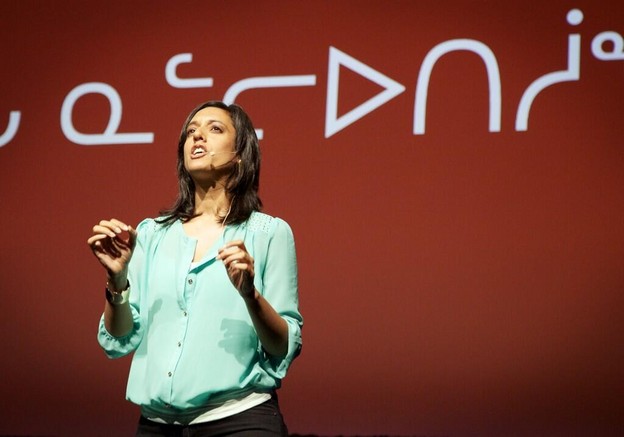Sounds outside of English
Sonnet L'Abbé's 'Ghazals for Zahra Kazemi'

Earlier this week, I received an email from a friend of mine, the poet Sonnet L'Abbé. She sent me one of her poems, "Ghazals for Zahra Kazemi," which appears in her book Killarnoe (2007). The occasion for the gift of this poem was the deaths of two Canadian soldiers in two separate incidents: when I received Sonnet's email, I was listening to a news report in which the two incidents — which took place in two separate provinces, on two different days — were blended together and blamed on radical Islam. Sonn, it emerged that the shooter in the second incident was Michael Zehaf-Bibeau, a person with an apparent "Arabic-sounding" name.
The poem that Sonnet sent me is a detailed investigation into exactly these patterns of blame and suspicion. Occasioned by the death of the Iranian-born Canadian journalist Zahra Kazemi in an Iranian prison in 2003 and by the detention and torture of Canadian software engineer Maher Arar at the hands of the United States government in 2003, the poem delves into the spaces between languages and identities. In her email to me, Sonnet wrote,
"Members of my family have names that don't sound rooted in English — because they aren't. My name isn't like that, and as a kid I used to be so glad about the absence in my name of any sign of my non-European heritage. But when the terrorist hunts start in the media, and a name like 'Zehaf' comes up, I think of my mother, and my uncles, and my cousins, and feel deep apprehensions about how certain sounds are heard by the dominant culture. The ghazal, a Persian/Urdu form that has a history of being taken up by Anglo-Canadian poets, felt like the right one in which to explore these apprehensions."
For my commentary this week, I am opening this space up to Sonnet's poem, which asks that we slow down and attend to multilingual sounds differently.
Z: Ghazals for Zahra Kazemi
One definition of the word ghazal [is that it] is the cry of the gazelle when it is cornered in a hunt and knows it will die.
- Agha Shahid Ali
The poem has no palpable intention upon us. It breaks, has to be listened to as a song: its order is clandestine.
- John Thompson
ZAH
Alpha male, Zahra.
Zeta female, Zahra?
Nine eleven I noticed my mom’s name is Zalena.
I noticed my cuzzins, Zaibun and Farzeen.
A to Z, said my uncle Asad.
Yes, Adam, said Muhammad.
The mountain comes. Zero sum.
Abu Ghraib. Arar.
Gaza, Zahra. Bloody gauze.
Your gaze on a military strip.
RA
Ra, ra. Sis boom bah.
Hip: hype: hip. Hooray!
This fall season, let’s pump
iron. Push artillery chic
(bodycheck them) on petite puck chicks.
Bench the liberal press.
Pompom the pill-fed population.
Pep the house-poor on.
The strong’s odds, yawn.
Big bad opponent, rad rally!
KA
CBC says A B C.
Hanguk says ka na da.
Yo, yo. That last book said Aral.
Look, Karakalpak, it said!
Nunavut says Kashechewan.
Toronto says uh-uh, ka-ching.
Ottawa spells inukshuk.
Québec tells them phoque.
In any cab, hear a-salaam alaykum.
North Amerika, say alaykum a-salaam.
ZE
I say, old chap, you’re jolly mum.
Muss use ainshen Chinee watoh torchoh.
Say ah. Say yassa, massa. Say uncle.
Learn 21 moans that drive men crazy!
Zat is ze wrong answer. Ve haff vays
of making you talk.
Ten Hail Marys, child. Two Our Fathers.
La la la la la la, I can’t hear you …
Yo G. Dis bitch in front we she wan freak. Word.
Swear, your honour, Lynddie never said
mwa-ha-ha, mwa-ha-ha.
MI
How I use you, too, Zahra.
Me, a name I call my self. Fatwa, a note.
Capitalizing on the buzz of your was.
A Jezebel with my new Uzbek
while oil’s gazillions upholster plus pews.
Ohm, Zahra. Reason, Zahra. Shalom, inshallah, amen.
My life of ease. How can I please
when your pleas track my waking dreams?
Mirror. Image. Other, Zahra. My body
can’t stop recognizing — realizing — itself.
Sonnet L'Abbé, Ph.D. is the author of two collections of poetry, A Strange Relief and Killarnoe, and is the 2014 guest editor of Best Canadian Poetry. L'Abbé has written a dissertation on the American poet Ronald Johnson, taught at the University of Toronto School of Continuing Studies and at the University of British Columbia, and in 2015 will be the Edna Staebler Writer-In-Residence at Wilfrid Laurier University.
Languages